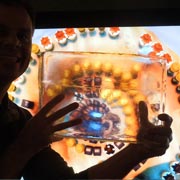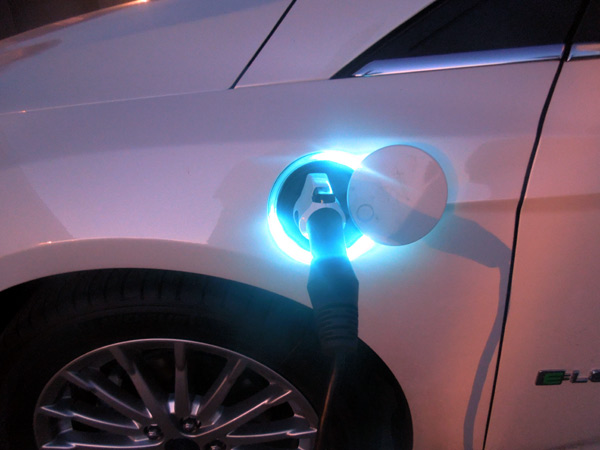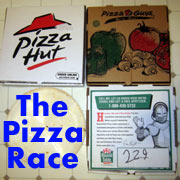On the Street: Guess Your Blood Alcohol Level Booth
Can regular people precisely guess their own level of intoxication?
By Rob Cockerham |
It's not every day you get your blood alcohol level tested.
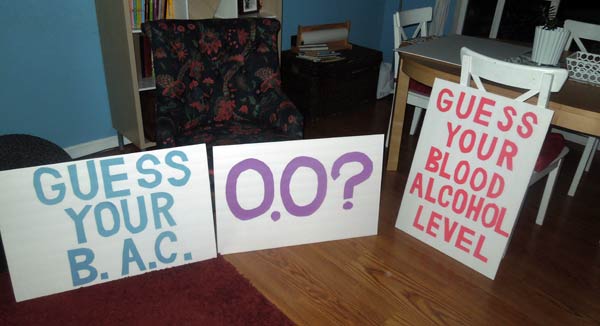
A few years ago I had a breathalyzer party, attempting to learn more about how a group consumes alcohol and about how different drinking habits translate into different intoxication levels. This year, I got a new breathalyzer and decided to take it onto the streets, to find out how well the general public can track the level of alcohol in their blood.
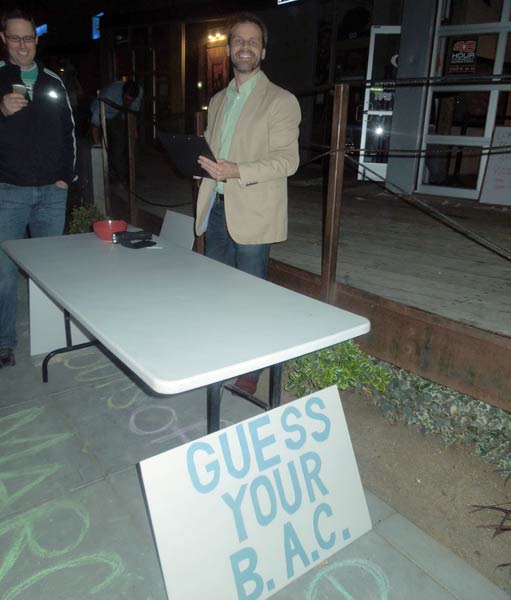
I'd make a game of it.
I made the Guess Your Blood Alcohol Level Booth.
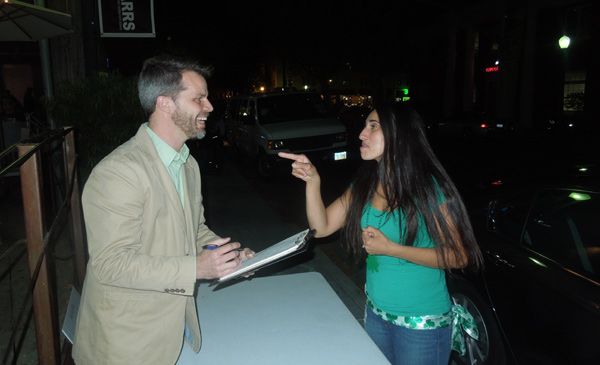
On the evening of St. Patrick's Day, 2014, I set up a table on the streets of Sacramento. I used three signs, coaxing passersby into guessing their blood alcohol levels. I asked them their names and asked them to recall what they'd had to drink. Then I asked them to guess their blood alcohol level.
".07?"
".11?"
".04?" They posed a number.
"Point eight.... or is it point oh-eight?", they'd ask their friends.
After some simple instructions, they tried their luck blowing through the breathalyzer.
Their guess was almost always incorrect, but no one was too surprised. They had very little faith in their own expertise.
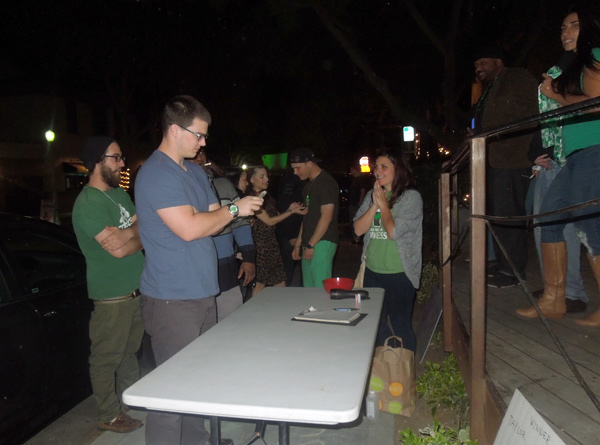
The booth was a big hit! The crowd went wild! I met a ton of fun people, and they were all eager to talk about what they are drinking. Everyone loved it!
It wasn't long before someone stated the plain truth about BAC: "I have no idea".
Without training, the average citizen of California knows this: drinking increases your blood alcohol level. After a couple of drinks, depending on your sex, weight and digestion, your intoxication passes the legal threshold for driving. That level is 0.08%.
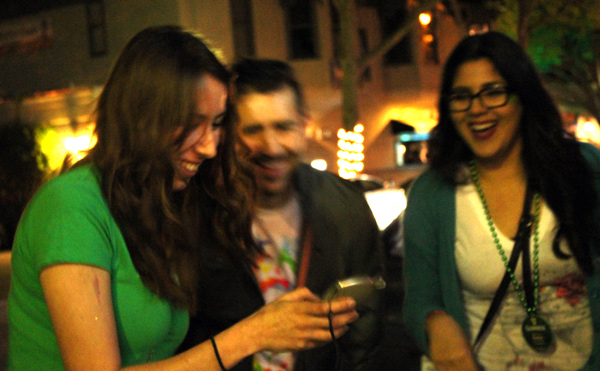
Without any experience of having their blood alcohol tested, people don't have enough information to make a good prediction of what reading they will achieve.

The attraction of the Guess Your Blood Alcohol Booth is that you can get an idea of what .08 really feels like.
Is it tipsy? Is it buzzed? Is it drunk?
Is .08 BAC a cautious threshold, where most people still have the ability to drive well, or is it a high threshold, where most drivers would have grave errors of skill and judgement in a car?
You don't know, unless you've been tested.
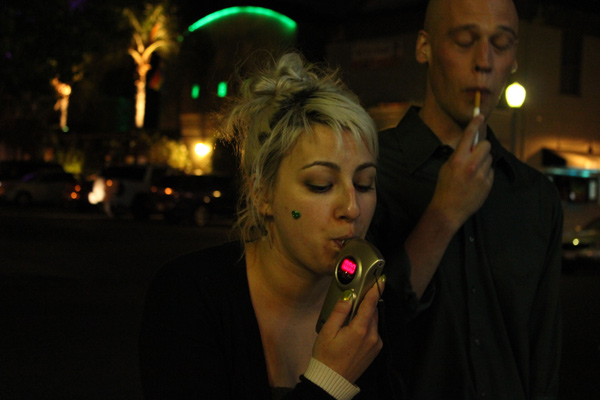
Most people we tested asked what our angle was. Were we trying to sell breathalyzers, or promote a car service like Uber? My favorite skeptic asked "What's the catch?", listened to the hypothesis I was testing and then repeated "Ok, but what's the catch?"
That's my brand of skeptic!
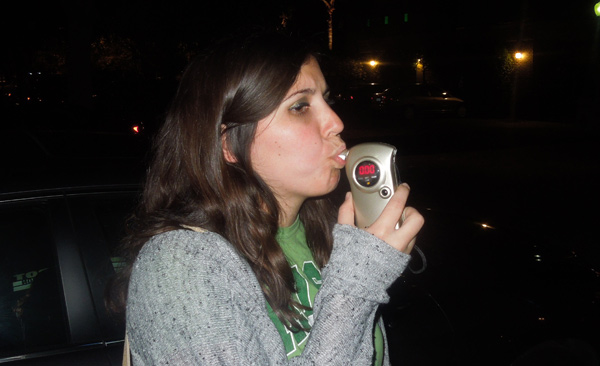
Foot traffic was pretty much ideal. The table never had too many people waiting, and I never had to wait for long for someone to come by for testing.
Everyone was in a good mood. They were drinking on a Monday, but St. Patricks is a national drinking holiday, like Superbowl Sunday.
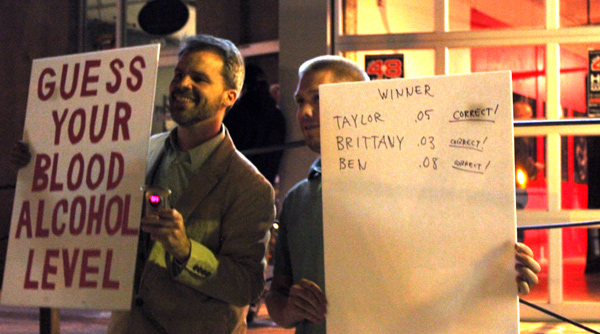
"What do you win?" some people asked.
"Nothing", I answered "but you get your name on this LIST OF WINNERS!" I kept an oversized leaderboard next to the table, where I'd inscribe the names of anyone who had guessed their BAC correctly. This was enough of a prize for everyone.
Of 92 people tested, 13 were able to correctly guess their BAC.
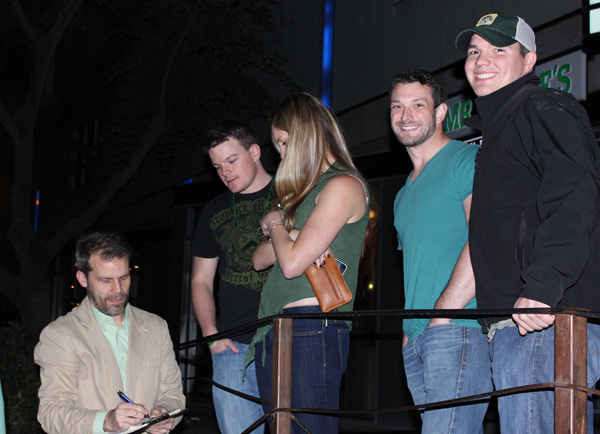
The drunk driving laws are unique. The legal driving limit is set at .08, but most people don't know when they've reached that level of intoxication.
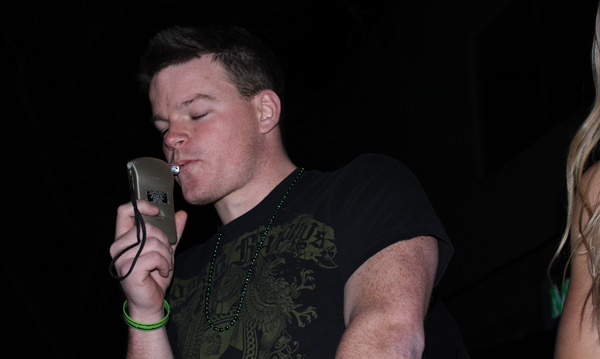
Some people took their BAC seriously, goading their friends about a particularly low or high reading.
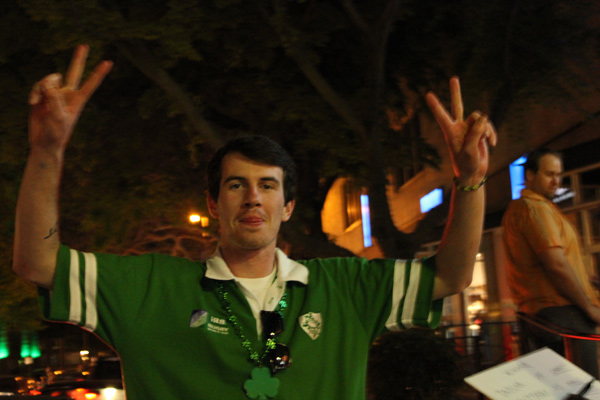
It wasn't at all obvious who was drunk. Some hid it much better than others.
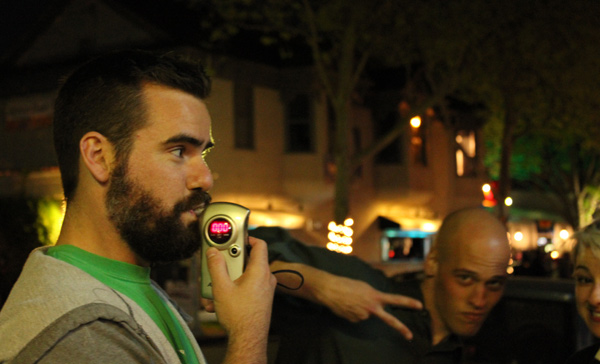
In more than one case, a group of friends would include one woman, and that woman would have a BAC far above the men in the group, often without showing any outward signs of intoxication. In both cases, wine and a low body weight seemed to be likely contributing factors.
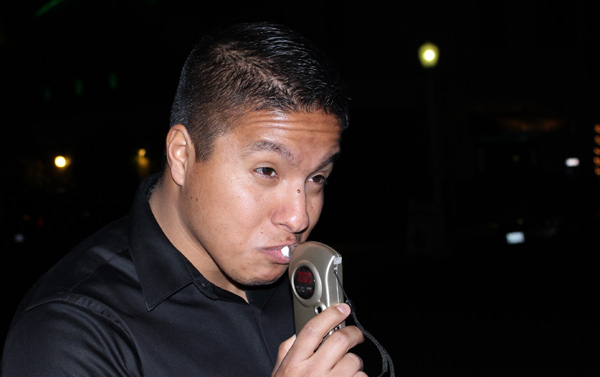
Please continue reading page two, where you can see the St. Pat's Intoxication Charts.


